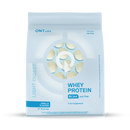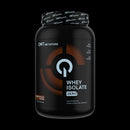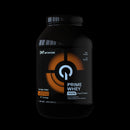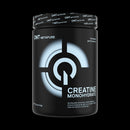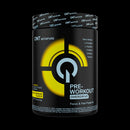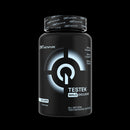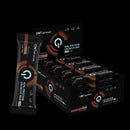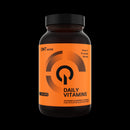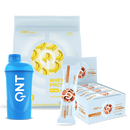Table of Contents
THE BASICS OF EFFECTIVE FOOTBALL TRAINING.
Football is a demanding sport that requires a combination of different physical qualities such as endurance, speed, agility, strength, and power. Effective training should aim to develop these aspects in a balanced way to optimize performance on the field. Here's how to structure your training program to meet the physical demands of football.
Understand the physical demands of football.
Football is a sport that combines high-intensity efforts with periods of active recovery. Players must be able to run long distances while being explosive and reactive during sprints, changes of direction, and duels. Here are the main physical demands of football:
- Endurance: A football player runs an average of 8 to 12 km per match, requiring a high level of endurance to maintain consistent performance throughout the 90 minutes.
- Speed and explosiveness: Sprints are essential in football, whether it's chasing an opponent, moving quickly to receive the ball, or making a break towards the goal. Explosiveness is crucial to succeed in these actions.
- Agility: The ability to change direction quickly and move fluidly on the field is fundamental for dribbling, defending, or intercepting the ball.
- Strength and power: Muscle strengthening, particularly in the legs and core, is important for physical duels, powerful shots, and overall stability on the field.
- Resilience and injury prevention: Football places significant physical stress on the body, requiring specific training to prevent injuries while increasing the body's ability to withstand fatigue.
Develop endurance and overall physical condition.
Endurance is the foundation of football performance, as it allows players to maintain a high level of effort throughout the match. To develop this capacity, an effective training program should include:
- Long runs at a moderate pace: Perform endurance runs at a comfortable pace to develop aerobic capacity. These sessions should last between 30 and 60 minutes and be conducted at moderate intensity (about 65-75% of your maximum heart rate).
- Interval training: To better simulate the demands of football, incorporate interval sessions into your program. For example, alternate periods of fast running (30-60 second sprints) with periods of active recovery (light jogging or walking). This helps develop both endurance and the ability to recover quickly after intense efforts.
- Small-sided games with high intensity: Train with small-sided games (e.g., 5 vs 5) that force you to maintain high intensity while working on endurance in a football-specific way.
Improve speed, agility, and explosiveness.
Speed, agility, and explosiveness are essential qualities for decisive actions on the field. Targeted training can help improve these key aspects of the game:
- Short repeated sprints: Incorporate sets of short sprints (10 to 30 meters) with enough recovery time to maintain high intensity in each repetition. These sessions help develop pure speed and power.
- Plyometric training: Plyometric exercises, such as jumps, bounds, or hill sprints, improve muscle explosiveness. These fast and dynamic movements engage muscles and tendons to maximize power in each action.
- Agility drills: Use cones, speed ladders, or hurdles to perform agility drills. These exercises are designed to improve the ability to quickly change direction, react to unexpected situations on the field, and maintain balance during fast movements.
- Position-specific training: For example, defenders can focus on drills that enhance their ability to quickly change direction to follow attackers, while forwards can work on acceleration and their ability to break free from opponents.
Football-specific muscle strengthening.
Football requires well-balanced muscular strength to withstand physical contact, shoot powerfully, and maintain stability on the field. A strength training program adapted to football should include:
- Leg strengthening: Exercises such as squats, lunges, calf raises, and leg presses are essential to develop the strength of the quadriceps, hamstrings, calves, and glutes. These muscles play a crucial role in running, jumping, and kicking the ball.
- Core work: A strong core improves body stability, balance, and injury protection. Include exercises like planks, crunches, and trunk rotations to strengthen the abdominals, obliques, and lower back muscles.
- Functional exercises: Movements that mimic football actions, like kicks or passes, can be incorporated with light weights or resistance bands to strengthen muscles in a sport-specific manner.
- Injury prevention: Include mobility and joint strengthening exercises (knees, ankles, hips) to reduce the risk of injuries related to impacts or repetitive movements.
The importance of warm-up and recovery."
Warm-up and recovery are essential components of effective football training. They help prevent injuries, improve performance, and promote muscle regeneration.
- Dynamic warm-up: Before each training session or match, perform a dynamic warm-up including football-specific movements (strides, high knees, hip rotations, etc.). This prepares muscles and joints for effort while increasing body temperature and blood circulation.
- Cool-down: After training, perform a cool-down with static stretches and relaxation exercises to relax the muscles and promote toxin elimination.
- Active recovery: In the days following an intense session, prioritize active recovery, such as walking or light jogging, to maintain blood circulation without further straining the muscles.
- Muscle regeneration: Techniques like foam rolling, massages, and proper post-training hydration and nutrition are crucial to accelerate muscle recovery and avoid prolonged soreness.
By following these training fundamentals and incorporating these key elements into your routine, you will be able to maximize your performance on the field while reducing the risk of injuries and optimizing your overall physical condition for football.
Plan your training sessions according to your position.
In football, each position on the field has specific demands. To maximize your performance, it is essential to plan your training sessions based on the skills and physical qualities required for your position. Here's how to adapt your training for forwards, midfielders, defenders, and goalkeepers.
Specific training for forwards.
Forwards need to be explosive, precise, and agile to stand out and score goals. Their training should focus on key offensive skills and the physical power required to succeed in this position:
- Improving finishing: Forwards must spend time perfecting their ability to score under pressure. This includes long-range shots, precise strikes in the penalty area, headers, and volleys. Train to shoot with both feet and in different game situations (moving balls, crosses, free kicks).
- Speed and explosiveness: Short, repeated sprints and quick-start exercises are crucial for forwards. They help break away from defenders and exploit open spaces. Reaction drills, like running onto through balls, also improve responsiveness.
- One-on-one play: Forwards need to be able to dribble and beat defenders in one-on-one situations. Practice quick changes of direction, feints, and dribbling moves to destabilize your opponents.
- Position-specific endurance: Forwards must be able to maintain intensity throughout the match. Include endurance drills with intermittent sprints to simulate phases of play where intense efforts are followed by periods of active recovery.
Targeted training for midfielders.
Midfielders are the engines of the team, controlling the game and facilitating transitions between defense and attack. Their training should reflect the need for endurance, game vision, and versatility:
- Endurance and overall fitness: Midfielders often cover the longest distances on the field. General endurance sessions, combined with intermittent running, are essential to maintain a high level of performance for 90 minutes.
- Ball control and precise passing: Work on passing technique under pressure by practicing short and long passes with precision. Possession drills in small spaces (rondos, positional games) are useful for improving ball control in tight situations.
- Game vision and decision-making: Train to read the game and make quick decisions by simulating match situations. Passing drills under pressure, triangle plays, and counter-attack scenarios help develop the ability to distribute the ball quickly and efficiently.
- Ball recovery skills: Midfielders must also excel at ball recovery. Practice tackling, intercepting, and shielding the ball to improve defensive skills while maintaining offensive awareness.
Strength and agility for defenders.
Defenders need to be strong, agile, and smart to protect their goal and stop opposing attacks. Their training should focus on physical strength, anticipation, and the ability to make clean passes out of defense:
- Physical strength and duels: Defenders are often engaged in physical battles. Strengthen your leg and core muscles to be more solid in contacts and more stable in aerial and ground duels. Exercises like squats, lunges, and hip extensions are essential.
- Agility and reaction speed: Defenders must be quick to follow attackers and react to changes in direction. Practice agility drills, such as weaving through cones and sprinting in response to visual or auditory cues, to improve your reactivity.
- Positioning and communication: Positional sense is crucial for defenders. Train to read the game and anticipate opponents' movements. Zone marking or man-marking drills, combined with communication with teammates, help refine these skills.
- Clean and precise passing: After winning the ball, defenders need to be able to pass it cleanly. Practice short and long passes under pressure, as well as accurate clearances, to quickly restart the attack.
Training program for goalkeepers.
Goalkeepers have unique physical and technical demands, requiring specialized training to excel in their role. Here are the key elements of a training program for goalkeepers:
- Reflexes and saves: Goalkeepers must have quick reflexes to react to close-range shots. Work on shot-stopping drills with varying speeds and angles, focusing on the speed of your movements and diving technique.
- Aerial play: The ability to dominate in the air is crucial for a goalkeeper. Train to catch or deflect crosses, working on your timing and positioning to leave your line and secure the ball.
- Distribution and playmaking: Goalkeepers need to restart play cleanly, whether through long clearances, foot passes, or hand throws. Practice distributing the ball accurately, whether to quickly launch a counter-attack or to play safely.
- Physical fitness and agility: A goalkeeper’s fitness must allow them to stay focused and responsive throughout the match. Core strengthening and endurance exercises, combined with agility drills, are essential to maintain quick reflexes and optimal mobility on the goal line.
- Decision-making: Practice making quick decisions under pressure, whether to leave the line, block a shot, or direct the defense. Simulate match situations where you must rapidly assess the available options and respond accordingly.
By structuring your training program based on the specific demands of your position on the field, you will be able to maximize your performance and contribute more effectively to your team's success. Whether you are a forward, midfielder, defender, or goalkeeper, a targeted approach will allow you to develop the essential skills to excel in your role.
Nutrition tailored to optimize your football performance.
A well-adapted nutrition plan is essential for maximizing your football performance. Whether it's to support your efforts during matches or training, recover effectively after exertion, or maintain an optimal performance level on the field, knowing what to eat and how to stay hydrated is crucial. Here's how to structure your diet to meet the specific demands of football.
Essential nutrients to support effort in football.
Football is a sport that combines aerobic and anaerobic efforts, requiring significant energy reserves and rapid recovery. Key nutrients for football players include:
- Carbohydrates: Carbohydrates are the primary source of energy for football players. They fuel the muscles during intense efforts and support endurance throughout the match. Consume complex carbs such as whole grains, brown rice, pasta, sweet potatoes, and starchy vegetables. It's crucial to replenish glycogen stores before matches or intense training sessions.
- Proteins: Proteins play a crucial role in muscle repair and building, especially after intense exercise. Make sure to consume high-quality protein sources such as chicken, fish, eggs, tofu, and legumes. Proteins are essential for recovery and maintaining muscle strength throughout the season.
- Healthy fats: Fats provide a long-lasting source of energy, especially during prolonged efforts. Incorporate healthy fats into your daily diet, such as those from avocados, nuts, seeds, and vegetable oils (like olive oil). They also help reduce inflammation and maintain cell health.
- Vitamins and minerals: Vitamins and minerals are essential to support bodily functions and recovery. Football players should pay special attention to their intake of iron (for muscle oxygenation), calcium and vitamin D (for bone health), as well as magnesium and potassium (for muscle function and cramp prevention). Consume a variety of fruits and vegetables to obtain these vital nutrients.
- Antioxidants: Antioxidants help reduce oxidative damage caused by intense effort and promote recovery. Foods rich in antioxidants, such as berries, citrus fruits, spinach, and nuts, are particularly beneficial.
What to eat before a match or intense training.
What you eat before a match or intense training session can have a direct impact on your performance. It's important to carefully plan your meals to ensure you have enough energy without overloading your digestive system:
- Meal timing: Eat a carbohydrate-rich meal 3 to 4 hours before the match or training session. This meal should be balanced and include complex carbs, lean proteins, and healthy fats. For example, a bowl of whole grain pasta with vegetables and grilled chicken, or brown rice with fish and green vegetables.
- Pre-match snack: About 30 to 60 minutes before kickoff, a light snack rich in simple carbs and low in fiber can provide a quick energy boost. Options like a banana, yogurt with honey, or a light energy bar are ideal for maintaining energy without overloading your stomach.
- Avoid common mistakes: Avoid foods that are high in fats, fiber, or protein just before the match, as they can slow digestion and cause digestive discomfort during effort. Also, avoid eating too close to the start of the match to prevent feelings of heaviness.
- Pre-game hydration: Make sure you are well-hydrated before the match by drinking water regularly in the hours leading up to kickoff. Proper hydration helps maintain your performance level and prevent dehydration.
Post-match nutrition for quick and effective recovery."
Post-match recovery is crucial for repairing muscles, replenishing energy stores, and preparing the body for the next effort. Proper nutrition after the match can make a big difference in the quality of your recovery:
- Metabolic window: The 30 to 60 minutes after a match are crucial for recovery. During this period, the body is especially receptive to nutrients, which promotes muscle repair and glycogen replenishment. Consume a snack or meal with a good balance of carbs and proteins.
- Carbs and proteins: A 3:1 ratio of carbs to proteins is recommended for optimal recovery. For example, a smoothie made with banana, milk or yogurt, and oats is an ideal option for quick recovery. Carbohydrates replenish glycogen stores, while proteins help repair muscles used during the match.
- Post-match meal: Within two hours after the match, consume a complete meal that includes lean proteins, complex carbohydrates, and vegetables. An example of a meal could be grilled chicken with quinoa and roasted vegetables, or a vegetable omelet with whole-grain bread.
- Post-exercise hydration: After the match, continue drinking water to replace lost fluids. If you’ve sweated heavily, a recovery drink containing electrolytes can help restore fluid balance and speed up recovery.
- Antioxidants for recovery: Include antioxidant-rich foods like berries, spinach, or almonds to help reduce inflammation and speed up muscle recovery.
Hydration: maintaining your performance throughout the 90 minutes.
Hydration is a key factor in maintaining your performance during a football match, especially when it extends over 90 minutes or more. Proper hydration helps prevent fatigue, cramps, and dehydration while optimizing your ability to play at your best:
- Pre-hydration: Make sure you are well-hydrated before the match by drinking water regularly in the hours leading up to it. However, avoid drinking too much right before kickoff to prevent discomfort.
- Hydration during the match: During the match, take small sips of water or an isotonic drink during breaks or stoppages in play, if possible. Isotonic drinks help replace electrolytes lost through sweat and maintain your energy levels.
- Monitoring signs of dehydration: Pay attention to signs of dehydration, such as intense thirst, fatigue, dizziness, or reduced urine output. Proper hydration also helps maintain mental focus and prevents costly mistakes on the field.
- Post-match hydration: After the match, continue drinking water to replace lost fluids. If you've played in hot and humid conditions, a recovery drink containing electrolytes can help restore fluid balance more quickly.
By adopting an appropriate nutritional approach and staying properly hydrated, you can maximize your performance on the field, recover more quickly after matches and training sessions, and maintain an optimal level of play throughout the season.
Adapt your nutrition to your football goals.
Adapting your nutrition to your specific football goals is essential to achieving them, whether it’s building muscle mass, improving endurance on the field, or optimizing performance through dietary supplements. Here’s how to structure your diet to meet the specific needs of each objective.
Nutrition for muscle gain in football players.
For football players looking to increase muscle mass while maintaining performance on the field, proper nutrition is essential. Gaining muscle mass requires a balance between adequate calorie intake and a good distribution of macronutrients.
- Caloric surplus: To gain muscle mass, it's important to consume more calories than you burn. A moderate caloric surplus (around 250 to 500 extra calories per day) is ideal for promoting muscle growth without gaining too much fat. Ensure this surplus comes from nutritious and balanced sources.
- Proteins for muscle growth: Proteins are essential for building and repairing muscles. Incorporate around 1.6 to 2.2 g of protein per kilogram of your body weight each day. Focus on lean protein sources such as chicken, fish, eggs, tofu, and dairy products. Protein-rich snacks like protein shakes or protein bars can help you meet your daily goals.
- Carbohydrates for energy and recovery: Carbohydrates are also crucial for fueling your workouts and promoting muscle recovery. Consume complex carbs such as oats, brown rice, sweet potatoes, and legumes to support your intense training sessions while fostering muscle gain.
- Healthy fats for hormonal support: Fats play a key role in hormone production, especially testosterone, which is important for muscle growth. Consume healthy fats from avocados, nuts, seeds, and vegetable oils to support your goals.
- Meal timing: Plan your meals to include protein at every meal and snack. Also, consume carbohydrates before and after your workouts to maximize available energy and recovery.
Nutrition to improve endurance on the field.
Endurance is a key element for football players, who need to be able to maintain a high level of performance throughout the match. A proper diet can help optimize endurance and prevent fatigue.
- Carbohydrates for sustained energy: Carbohydrates are the main source of energy for prolonged efforts. To improve your endurance, aim to consume complex carbohydrates at every meal. Before a match or training session, eat a carbohydrate-rich meal, such as whole-grain pasta, rice, or sweet potatoes, to replenish your glycogen stores.
- Intake during exertion: During matches or extended training sessions, it can be helpful to consume quick carbohydrates to maintain your energy levels. Energy gels, fruit bars, or isotonic drinks are good options to sustain your endurance on the field.
- Proteins for recovery: While carbohydrates are essential for endurance, proteins also play a role in recovery and muscle repair. Consume a source of protein after each training session or match to support muscle regeneration and avoid long-term fatigue.
- Hydration to prevent fatigue: Proper hydration is crucial to maintaining your endurance. Make sure to drink enough water throughout the day, and supplement with isotonic drinks during extended efforts to replace lost electrolytes.
- Antioxidants to reduce inflammation: Include foods rich in antioxidants, such as berries, citrus fruits, and green vegetables, to reduce inflammation and improve recovery after matches.
Useful dietary supplements for football players: which ones to choose?
Dietary supplements can be an asset for football players, provided you choose those that are suited to their specific needs. Here are the most commonly used supplements to support performance and recovery:
- Protein powders: Protein powders, such as whey or plant-based proteins, are convenient for increasing protein intake, especially after training. They help with muscle recovery and growth, which is essential for football players who aim to maintain their strength throughout the season.
- BCAA (branched-chain amino acids): BCAAs are useful for reducing muscle fatigue and speeding up recovery. They can be particularly beneficial during intense workouts or matches, helping to prevent muscle breakdown.
- Creatine: Creatine is known to improve strength and power, which can be an advantage for football players during sprints, jumps, or physical duels. It also helps increase energy reserves for explosive efforts.
- Omega-3: Omega-3 fatty acids, found in fish oil or flaxseed oil supplements, have anti-inflammatory properties and can help reduce muscle soreness after exercise. They also support cardiovascular health, which is essential for maintaining endurance on the field.
- Multivitamins: A good multivitamin can fill any nutritional gaps, especially during a restrictive diet. Adequate intake of B vitamins, iron, magnesium, and zinc is important for supporting energy, recovery, and immune functions.
- Glucosamine and chondroitin: These supplements are often used to support joint health, particularly for football players who put a lot of strain on their knees and ankles. They can help reduce joint pain and prevent injuries related to repetitive impacts.
By choosing the right dietary supplements and tailoring your nutrition to your specific football goals, you can optimize your performance, improve your recovery, and achieve your objectives more quickly and effectively.
Common mistakes to avoid in football training and nutrition.
To maximize your football performance, it's essential to avoid certain common mistakes in training and nutrition. These mistakes can hinder your progress, increase the risk of injuries, or reduce your effectiveness on the field. Here’s a guide to identifying and correcting the most frequent pitfalls.
The dangers of unbalanced diets for football players.
Unbalanced diets can seriously affect the performance and health of football players. Inadequate nutrition can lead to deficiencies, fatigue, and slower recovery, compromising results on the field.
- Nutritional deficiencies: Overly strict or unbalanced diets can deprive your body of essential nutrients. For example, a low-carb diet can reduce your energy reserves, while a lack of protein can hinder muscle repair. It is crucial to maintain a balanced intake of carbohydrates, proteins, and healthy fats to support physical efforts and recovery.
- Impact on performance: An unbalanced diet can lead to a decrease in performance on the field, as the body won't have the energy needed for sustained effort. Football players should ensure they consume enough carbohydrates to maintain endurance, proteins for muscle repair, and healthy fats to support cellular and hormonal functions.
- Risk of injury: Deficiencies in vitamins and minerals, such as calcium, iron, or magnesium, can weaken bones and muscles, increasing the risk of injury. Football players must ensure their diet is rich in micronutrients to maintain overall health and prevent injuries.
- Tips for a balanced diet: To avoid these dangers, adopt a varied and balanced diet that includes all food groups. Focus on food quality by prioritizing whole, nutritious foods, and adjust your calorie intake based on your energy needs.
Overtraining in football: signs to watch for and prevention.
Overtraining is a common issue among football players who train intensively without allowing enough time for recovery. It can lead to decreased performance, injuries, and chronic fatigue. Here’s how to recognize the signs of overtraining and how to prevent it:
Signs of overtraining:
- Persistent fatigue: If you constantly feel exhausted, even after periods of rest, this is a clear sign of overtraining. Accumulated fatigue can affect your performance on the field and increase the risk of injury.
- Decreased performance: An unexplained drop in performance, such as reduced speed, endurance, or strength, despite regular training, may indicate overtraining.
- Muscle and joint pain: Persistent soreness beyond normal recovery, recurring injuries, or muscle strains are common indicators of overtraining.
- Sleep disturbances: Difficulty falling asleep, frequent waking, or poor-quality sleep are often associated with overtraining.
- Irritability and lack of motivation: Overtraining can also affect your mood, leading to irritability, lack of motivation, and a decrease in interest in training.
How to prevent overtraining:
- Recovery planning: Incorporate full rest days and active recovery periods into your training program. Don’t underestimate the importance of recovery phases to allow your body to repair and adapt to training loads.
- Vary training intensities: Alternate between high-intensity sessions and lighter ones to avoid overworking the same muscle groups and energy systems continuously.
- Listen to your body: Learn to recognize signs of excessive fatigue and adjust your training accordingly. If you experience unusual fatigue or persistent pain, take a rest day or reduce the intensity of your sessions.
- Track training load: Use tools like a heart rate monitor or a power meter to monitor your training load and avoid exceeding your limits.
Common mistakes in pre-match meal planning.
What you eat before a match has a direct impact on your performance. Many common mistakes in pre-match meal planning can harm your results on the field. Here's how to avoid them:
- Eating too close to the match: Consuming a heavy meal just before playing can lead to digestive issues, such as stomach cramps, bloating, or nausea. To avoid these problems, eat a balanced meal 3 to 4 hours before the match, including complex carbs, lean proteins, and healthy fats.
- Ignoring the importance of prior testing: Testing your meals during training is essential. Eating something new or unfamiliar on match day, without testing it beforehand, can cause unexpected digestive issues. Every body reacts differently to foods, so it’s important to know what works for you before incorporating it into a pre-match routine.
- Poor food choices: Eating foods high in fiber, fats, or protein just before the match can slow digestion and cause discomfort. Instead, opt for simple, easy-to-digest carbs, such as a banana, toast with honey, or a light energy bar. These foods provide quick energy without overloading your digestive system.
- Lack of proper hydration: Not hydrating adequately before the match can lead to dehydration, negatively affecting your performance. Drink enough water in the hours leading up to the match to stay hydrated, but avoid drinking too much right before to prevent discomfort.
By avoiding these common training and nutrition mistakes, you can maximize your performance on the field, reduce the risk of injuries, and maintain a healthy balance between effort and recovery.
COACH'S TIPS
- Currently, in any sport, if you want to progress, you need a basic level of physical fitness and then gradually improve each area of performance. Reaching the highest level is no longer just about being talented. There is real foundational work behind every top-level player.
- Nutrition is also a key responsibility for any high-level athlete who wants to improve. Supplements like protein powder, creatine, and vitamins and minerals can help correct or enhance your diet.
Read more
 Training
TrainingGroup classes more effective than classroom work?
We often ask this question: which one is the most effective? Group training or individual workout programs in the gym? Let's first consider the two...
Summer body edition for men: How to prepare your body?
Gentlemen ? The return of the sun and its warm rays are almost here! The degrees are slowly but surely rising, but what about your muscles? Ouch! I...
 Training
TrainingSHOULD YOU USE A WEIGHT BELT FOR LIFTING?
The next person you see in the squat cage with 20 kg on the bar and a big belt, maybe you can make a comment after reading these few lines.
 Our Tips
Our TipsHow to train flexibility?
The way to train flexibility is often highly controversial. Depending on the sports you practice, you work differently. A dancer and an athlete tra...
 Dietary Supplements
Dietary SupplementsWhy take turmeric?
There are hundreds and hundreds of spices with different properties and turmeric is obviously one of them! It is a spice that is generally quite we...
Which fat burner to choose?
To lose weight and burn fat, there is no secret: you have to do sport and take care of your diet. However, it is possible to speed up the process t...
 Our Tips
Our TipsFasting and sport: 9 tips for training during Ramadan.
Working out during Ramadan is not easy. Not eating from sunrise to sunset is a major challenge for athletes wishing to continue their activities. T...
 Our Tips
Our TipsSummer holidays: How to limit the damage?
On holiday, we often tend to let ourselves go. Unless you're a hardcore sportsman, you tend to abandon your trainers and indulge in a lot of dietar...
 Health
HealthHow to preserve your joints?
We have a total of about 400 joints located throughout the body. We therefore quickly understand why joint problems are quite common. You don't hav...
 Our Tips
Our Tips9 good reasons to do sport.
Sometimes the urge to exercise is not always there. And although we always tell ourselves that this year will finally be the right one to get back ...

